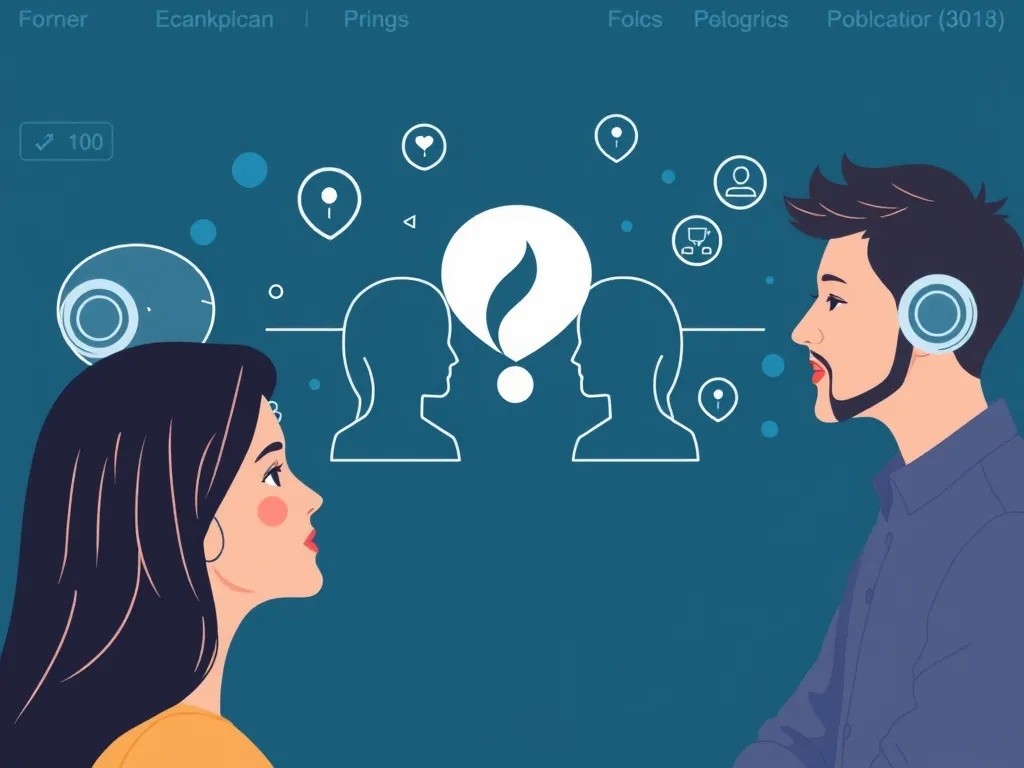In recent years, there has been a significant advancement in the field of Artificial Intelligence (AI) and Augmented Reality (AR). These technologies have become increasingly popular and have the potential to enhance virtual experiences in various fields such as gaming, education, healthcare, and...
AI Helps People Make Friends Based on Personality Compatibility

A New Approach to Building Friendships
In an increasingly connected yet paradoxically lonely world, artificial intelligence is emerging as an unexpected solution to help people form genuine friendships. Advanced AI systems now analyze personality traits, interests, values, and communication styles to match individuals who are likely to develop lasting, meaningful connections. This technology addresses a growing need in modern society where traditional friend-making opportunities have diminished due to remote work, urban sprawl, and busy lifestyles.
Unlike dating apps that focus primarily on romantic attraction, these friendship-focused platforms use sophisticated algorithms to evaluate compatibility across multiple dimensions of personality and lifestyle. The goal is not just to introduce people with similar interests, but to identify deeper psychological compatibility that forms the foundation of strong friendships.
How AI Assesses Personality Compatibility
The technology behind AI-powered friendship matching draws from decades of psychological research on personality theory and interpersonal relationships. These systems typically employ a multi-faceted approach to understanding each individual.
Data Collection Methods
- Comprehensive personality questionnaires based on established models like the Big Five
- Interactive activities and games that reveal behavioral patterns
- Natural language processing of user-written profiles and responses
- Analysis of interests, hobbies, and lifestyle preferences
- Communication style assessment through messaging patterns
The AI doesn't simply look for people who are identical in every way. Research shows that some degree of complementary traits can enhance friendships. For example, an introverted person might appreciate a more outgoing friend who gently encourages them to try new experiences, while the extroverted person values their friend's thoughtful, calming presence.
The Science Behind Friendship Compatibility
Core Personality Dimensions
AI systems evaluate compatibility across several key personality dimensions. Openness to experience helps match people who share similar curiosity levels about the world. Conscientiousness matching ensures friends have compatible approaches to planning and reliability. Extraversion analysis helps balance social energy levels between potential friends.
Emotional stability and agreeableness are also crucial factors. The AI seeks to match individuals whose emotional processing styles complement each other, creating relationships where both people feel understood and supported.
Values and Life Philosophy
Beyond personality traits, the AI examines deeper values and life philosophies. This includes attitudes toward work-life balance, perspectives on personal growth, approaches to conflict resolution, and fundamental beliefs about relationships and community. These deeper alignments often prove more important than surface-level interests in determining long-term friendship success.

Practical Applications and Success Stories
Several platforms have reported remarkable success rates in facilitating friendships. Users describe feeling understood in ways they hadn't experienced with casual acquaintances. The AI's ability to identify compatible communication styles means that conversations flow more naturally from the first interaction.
Addressing Loneliness Across Demographics
The technology proves particularly valuable for specific groups facing friendship challenges. New parents often struggle to maintain old friendships while seeking connections with others in similar life stages. People who have relocated to new cities find the AI matching helpful in quickly establishing a social network. Retirees discovering new interests benefit from connecting with like-minded individuals.
Privacy and Ethical Considerations
The deep personal data required for effective personality matching raises important privacy concerns. Reputable platforms implement strong encryption and give users control over their information. The AI systems are designed to match people without human moderators accessing sensitive personal details.
Ethical guidelines prevent the technology from being used for manipulation or discrimination. The algorithms are regularly audited to ensure they don't inadvertently create echo chambers or exclude individuals based on protected characteristics.
Limitations and Human Elements
While AI can facilitate introductions and predict compatibility, the technology acknowledges its limitations. Building genuine friendship still requires human effort, vulnerability, and time. The AI serves as a sophisticated introduction service, not a replacement for authentic human connection.
What AI Cannot Replace
- The organic development of inside jokes and shared history
- Learning to navigate conflicts and misunderstandings together
- The spontaneous moments that define close friendships
- Emotional availability and willingness to be vulnerable
The Future of AI-Assisted Friendship
As the technology evolves, future systems may incorporate real-time adaptation based on how friendships develop. AI could suggest activities that align with both friends' interests or identify potential areas of conflict before they become problems. Integration with virtual reality might enable people from different geographic locations to share experiences in immersive environments.
The ultimate goal remains constant: using technology to help people overcome the barriers that prevent meaningful human connection. In a world where loneliness is increasingly recognized as a serious health concern, AI-powered friendship matching offers a promising tool for bringing compatible people together and fostering the social bonds that enrich our lives.



